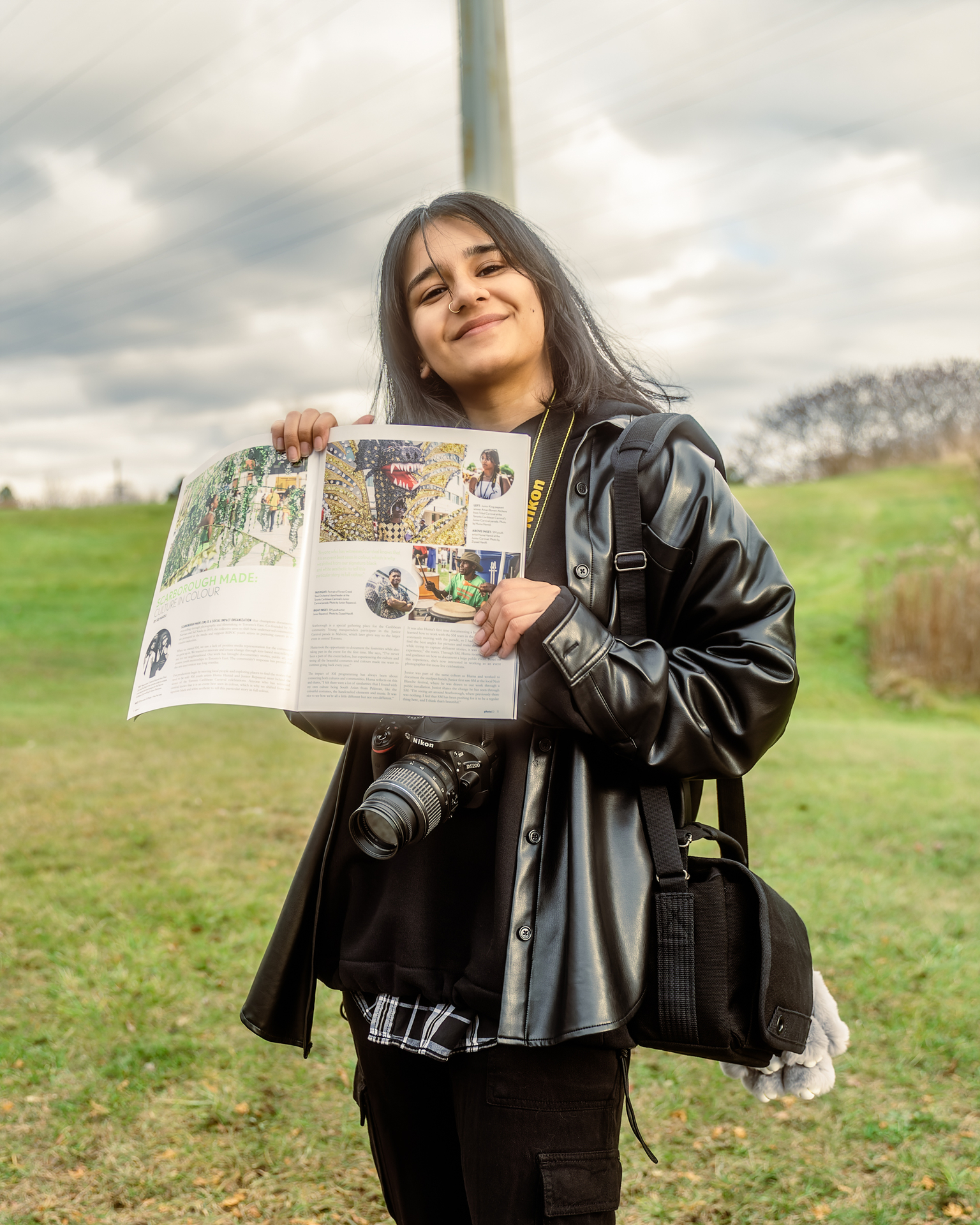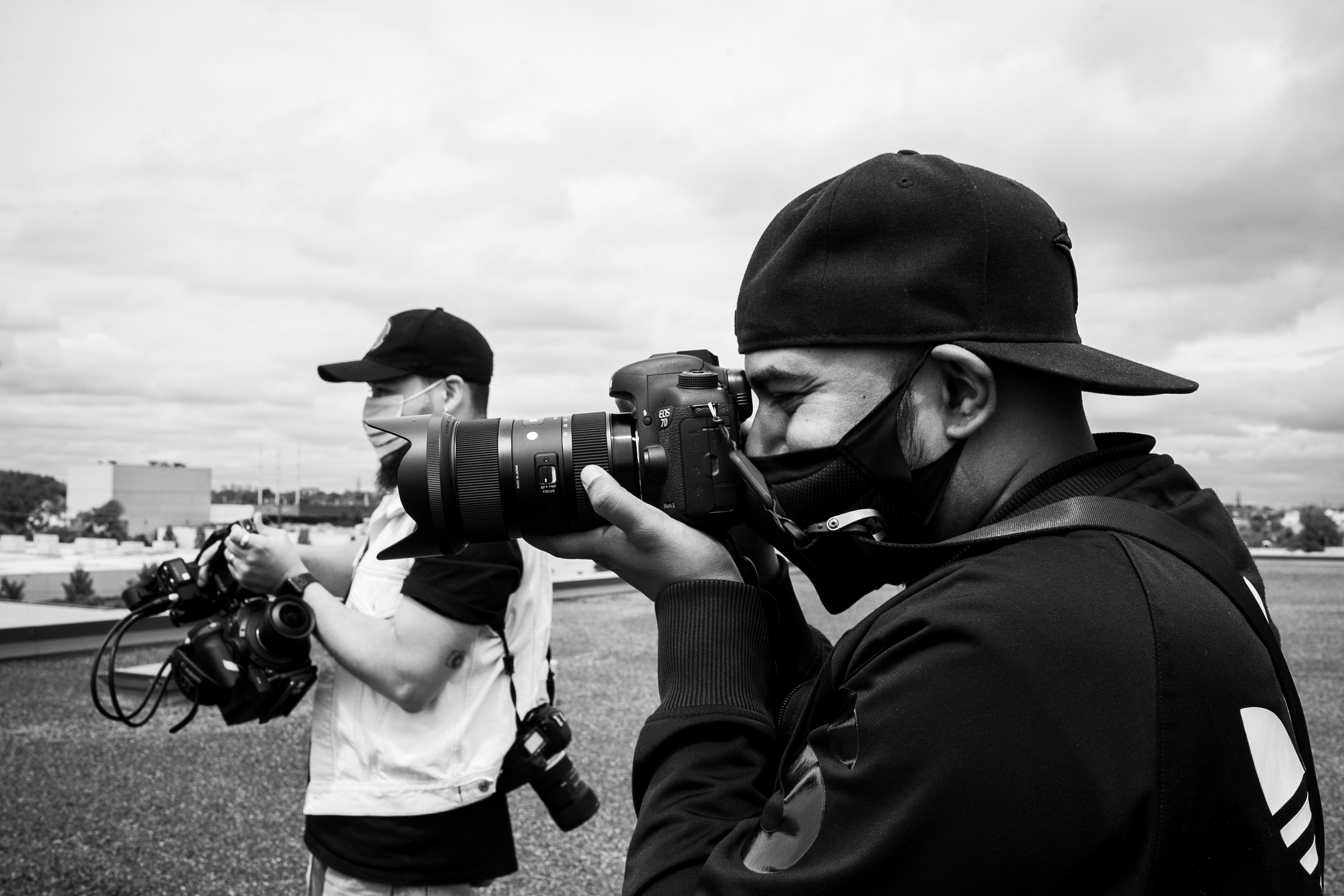“When someone comes into the hospital, they don’t even want to identify they’re Indigenous,” says Henry. “And if they do, they’ve got nothing but bad stories.”
When Ellie Henry walks into Scarborough Health Network (SHN), she brings with her a mission to change health care for Indigenous communities. As the Indigenous Patient Navigator, she advocates for safe, inclusive, and culturally sensitive care environments where Indigenous patients feel heard and respected.
Henry’s work confronts the historical racism, mistreatment, and poor care that Indigenous people face in healthcare facilities, frequently leading to deaths like in the case of Joyce Echaquan in Quebec. Such treatment has left many wary of hospitals.
Indigenous Patient Navigator, Ellie Henry poses inside SHN General Hospital.
Nikita Goutam/Change Made Press.
Part of SHN’s 2022-2025 Equity, Diversity, and Inclusion strategy, Henry’s role was created to strengthen SHN’s Indigenous Health Program. With over seven years of experience supervising healthcare professionals within First Nations communities, Henry is dedicated to making health care more supportive for Indigenous patients and their families.
Her approach centres on trauma-informed care, which considers the deep impact of historical and intergenerational trauma. Supporting Indigenous patients includes creating an environment where they feel safe to seek traditional healing if they wish, she explains.
Henry actively engages SHN staff in Indigenous cultural sensitivity training, embedding principles of trauma-informed care throughout the network. Learning has to be ongoing, Henry says, emphasizing the need for hands-on sessions that build empathy and understanding. “If everyone understood where everyone was coming from, then people would just treat people better in general.”
Ellie pictured in her day-to-day uniform, featuring the ‘Love, Scarbrough’ marketing campaign alongside the First Nations medicine wheel, symbolizing the relationship the two have.
Nikita Goutam/Change Made Press.
people. “In a hospital setting, they’re just looking at your physical symptoms,” she says. However, cultural practices and ceremonies can help provide more holistic care for Indigenous patients. “Be open to allowing for ceremony as part of healing.”
Henry envisions hospital spaces that offer holistic healing options, like sacred fires and sweat lodges, reflecting a broader view of health encompassing mental, spiritual, and emotional well-being.
Her commitment extends beyond individual interactions to policy development and community outreach. Henry has spearheaded initiatives like a smudging policy at SHN and organizes events, such as drum socials with local partners like the Scarborough Centre for Healthy Communities. These gatherings foster a sense of connection and visibility for Indigenous culture within health care.
Henry’s work addresses significant challenges Indigenous patients face in health care, aiming to dismantle the systemic barriers that have historically marginalized these communities. Despite her achievements, she remains the only Indigenous liaison at SHN, limiting her capacity to support Indigenous patients consistently. She dreams of expanding her team to offer continuous support, noting the gaps left when she’s not there. Instances of discrimination or inadequate care in her absence highlight the need for an expanded support network.
Ellie demonstrates the practice of smudging, cleansing and purifying the space.
Nikita Goutam/Change Made Press.
In a healthcare landscape where many Indigenous folks feel hesitant to seek help, Henry’s mission is to shift that narrative. By advocating for Indigenous rights, creating safe spaces, and integrating traditional healing into care plans, she is paving the way for an inclusive and equitable healthcare system. Through her tireless efforts, Henry exemplifies the profound impact of dedicated advocacy. She hopes that these initiatives will inspire broader change, creating a healthcare environment where every patient feels valued and respected.
“There is so much work to be done,” Henry admits, but her determination to bring about systemic change remains unwavering. “If even one person feels bad coming into the hospital, that’s one person too many.”
-

Huma Hamid
Huma Hamid is a Toronto-based writer, editor, and content creator. Her work has appeared in reputable publications including MoneySense and Range Travel. With journalism training from the University of Toronto and Centennial College, she brings a sharp eye and informed voice to every project. Huma joined our team as a youth artist, recruited through the Scarborough Made project, and freelanced with Change Made Studios to lend her creative expertise to our initiatives.
View all posts


